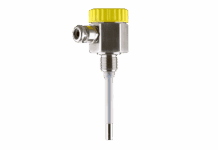
Mark Horton of the conservation charity made the appeal to all farmers “to urgently check there is sufficient capacity in their slurry stores and that all above ground slurry tank valves are properly maintained and secure.”
The late March spill, reported as a 400,000-gallon slurry spill on the Claggan River, a tributary of the Ballinderry River in County Tyrone, killed thousands of brown trout, Dollaghan trout, salmon, gudgeon and sticklebacks.
The Ballinderry River is also home to one of Northern Ireland’s last remaining populations of the globally endangered freshwater pearl mussel, which can live for over 100 years and relies on trout as part of its life cycle.
The spill, from an above-ground store, impacted 29 kilometres (18 miles) of the river to where it joins Lough Neagh, which is the largest freshwater lake in the United Kingdom and Ireland.
It is not yet clear how the slurry spill happened, and there is an ongoing investigation by Northern Ireland’s Department of Agriculture, Environment and Rural Affairs (DAERA) Water Quality Inspectors and Inland Fisheries Officers.
“This pollution incident is a huge setback to the decades of work that both
Ballinderry Rivers Trust and local angling clubs have been doing to improve Ballinderry’s rivers for wildlife and the local community,” Mark said.
“This catastrophic pollution incident happened when water levels were low, so there has been little dilution of the slurry, and it is slow-moving through the river system. Unfortunately, that means generations of fish have been wiped out, and it will take many years for the river to recover.
“This devastating slurry spill is a warning and timely reminder that vigilance and care are required in agricultural practices.
“In order to minimise the impact of slurry run-off into rivers and streams, we encourage farmers to follow best practice and only spread slurry where land and weather conditions allow, always checking weather forecasts before spreading as rainfall could wash valuable nutrients off your land.”
“Our rivers are delicate ecosystems supporting many wildlife and aquatic species and are often supplying our drinking water. Rivers are shared natural community assets and need to be considered and protected in all agricultural, industrial, leisure, and domestic activities. Only through working together can we help protect our rivers now and for future generations.”







